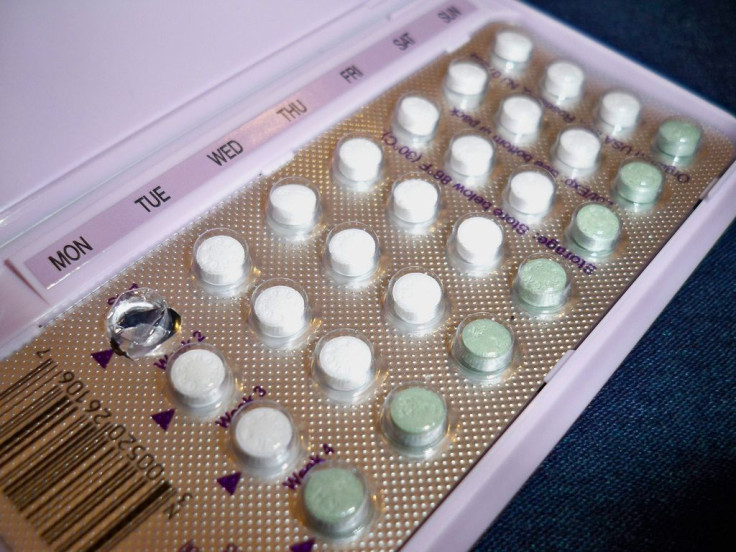Birth Control Pills Increase Risk For Ischemic Stroke, But Only In Certain Women: Study

The idea that women taking oral contraceptives, or birth control pills (BCPs), increase their risk for blood clots and subsequent ischemic stroke, is not new — a 1962 research paper was reportedly the first to suggest a link between the two. The idea was that a high dose of the hormone estradiol, once as high as 150 micrograms (mcgs), was influencing this risk. But technology has greatly advanced since the 60s, meaning all forms of birth control, and not just pills have advanced, too. So what do we do with this new study that found there’s a “small, but significant increased risk of stroke” among women on BCPs?
First, don’t panic: The study, published in MedLink Neurology, did find an increased risk, but it also found this risk was dependent upon several factors. Researchers analyzed the results of existing studies and papers and found some women taking BCPs may have a genetic susceptibility. Another study found that an increase in LDL (“bad”) cholesterol while on the pill increased cardiovascular reactivity, as well as a change in insulin response, which can increase the incidence of stroke.
Similarly, The World Health Organization (WHO) found in 1996 that an increased risk of ischemic stroke, which accounts for 85 percent of all strokes, was observed among users of higher estrogen oral contraception, but not with lower estrogen forms. Actually, this association is why many hormonal doses included in BCPs today are as little as 20 to 30 mcgs, with none over 50 mcg. However, in developed nations, WHO found all doses of BCPs were associated with an increased stroke risk. Researchers speculate that these differences stem from patient selection and blood pressure management — and again, genetic susceptibility.
Researchers found, too, some evidence of ethnicity factoring into stroke risk among women taking BCPS. One study found that Chinese women on long-term, low-dose BCPs had a higher risk of hemorrhagic stroke, which persisted long after women went off their pills.
If you’re a numbers person, researchers found that there are about 4.4 ischemic strokes for every 100,000 women of childbearing age. In women taking BCPs, that number of strokes increases to 8.5. Put another way, 24,000 women would have to take BCPs to cause one additional stroke, researchers said.
“Any increased risk of stroke associated with hormonal contraception must be placed in the context of the absolute stroke risk in the studied population,” they added.
Dr. Vanessa Cullins, vice president of external medical affairs at Planned Parenthood Federation of America, would be inclined to agree. “The truth is that the pill is one of the most studied forms of medication available, and we know that it’s very safe and that most women can use hormonal birth control safely,” she told Medical Daily in an email. “At the same time, all medications have some risks, so safety is a concern when choosing a birth control method. There are many contraceptive options for women — and all come with different benefits and risks. It’s important that you talk with your health care provider about all the potential risks and benefits of any specific method.”
What the researchers and Cullins both suggest is that there may very well be a risk of stroke when taking BCPs, but for some women, this risk is much higher and more of a concern. Ischemic stroke risk was 40 percent higher. If women taking BCPs also smoke, have high blood pressure, or have a history of migraine headaches, then it’s worth talking to your doctor about alternative forms of birth control. Women taking hormone replacement therapy alone or combined with progestin should also speak with their doctor as researchers find stroke risk among this population of women is as high as 40 percent. The higher the dose, the higher the risk.
The bottom line: Women should feel free to try different forms of birth control, because birth control is "not one-size-fits-all," Cullins said.
“A method that’s perfect for one woman may not be right for another, and for most women, you may need a different method at different points in your life,” she added. “As a woman’s life changes — her family, her goals, her plans — she may need or want different birth control methods.”
That said, and as a reminder, many methods of birth control do not protect against sexually transmitted diseases, Cullins continued. So women researching safe and effective forms of birth control should also keep in mind that combining the chosen method with condoms will prevent STDs, including HIV.
Source: McGinley M, Morales-Vidal S, Biller J, Levine SR. Hormonal contraception and stroke. MedLink Neurology. 2015.
Published by Medicaldaily.com



























